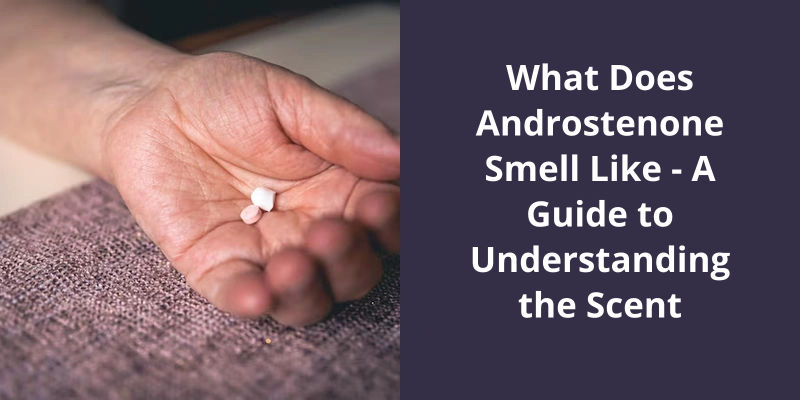Citral is a key component found in many essential oils like lemongrass and lemon myrtle. It’s known for its strong lemon-like fragrance and is highly valued in the perfume and cosmetics industry. Beyond its versatile use in creating beautiful scents, citral also has significant health benefits. It is believed to have antimicrobial and antifungal properties, making it effective in combating infection-causing organisms. Citral is also known for its potential in reducing inflammation and relieving pain. It’s considered beneficial for digestive health too, as it helps in soothing the stomach. Moreover, studies suggest that citral may have anti-cancer properties. Although it has numerous proposed benefits, it is advised to use citral with caution due to its potential allergenic effects.

What Is the Function of Citral?
Citral is a versatile compound that serves multiple functions in various industries. It’s commonly used as a natural flavoring agent, providing a refreshing citrus aroma and taste to beverages, foods, and cosmetics. The pleasant aroma and taste of citral make it a popular choice for manufacturers looking to enhance the sensory experience of their products.
While citral has many applications, it’s use is limited due to it’s chemical instability in acidic environments. This means that it may break down or lose it’s potency when exposed to acidic conditions, which restricts it’s usage in certain products. However, with advancements in technology and formulation techniques, researchers are exploring ways to improve the stability of citral, allowing for it’s wider application in acidic environments.
It’s key function lies in providing a refreshing citrus aroma and taste, as well as acting as a natural preservative and fragrance enhancer.
In addition to it’s pleasant citrus aroma and flavor, citral offers a range of health benefits. It’s been found to possess important biological effects, including antimicrobial and anticancer properties. Additionally, citral exhibits antioxidant and anti-inflammatory activities, making it a potential candidate for combating oxidative stress and reducing inflammation in the body. Furthermore, it’s been shown to have stimulating effects on the central nervous system and may also provide a protective action against ulcers.
What Are the Health Benefits of Citral?
Citral, a natural compound found in various plants, offers numerous health benefits. One of it’s notable traits is it’s antimicrobial property. Studies have shown that citral exhibits strong antibacterial and antifungal effects, making it effective against various pathogens that can cause illnesses. This antimicrobial activity is particularly beneficial in fighting against drug-resistant strains of bacteria.
Research has highlighted it’s potential ability to inhibit the growth of cancer cells, making it a potential candidate for cancer prevention and treatment.
Citral is also known for it’s anti-inflammatory effects. This anti-inflammatory activity extends to it’s potential benefits in protecting against certain neurodegenerative diseases, as inflammation is often involved in their progression.
Moreover, citral has been found to have central nervous system stimulating effects. It can enhance alertness, concentration, and cognitive function. This makes it a potential natural remedy for improving mental clarity and combating fatigue.
Lastly, citral has been shown to have gastroprotective properties against ulcers. It can help protect the stomach lining, reduce gastric acid secretion, and promote the healing of gastric ulcers.
It’s diverse biological effects make it a promising compound for further research and potential applications in medicine.
Citral’s Potential Benefits for Cardiovascular Health and Cholesterol Management
- Reduced risk of cardiovascular diseases
- Lowered levels of LDL cholesterol
- Inhibited oxidation of LDL cholesterol
- Improved heart health
- Enhanced blood circulation
- Promoted blood vessel health
- Aided in managing high blood pressure
- Supported healthy lipid profiles
- Reduced atherosclerosis progression
- Protected against blood clot formation
Citral, an organic compound that contributes to the citrusy aroma, can be found in various plant oils. Lemon-peel oil, known for it’s zesty scent, contains citral, as does lemongrass oil. Interestingly, lemongrass oil is considered the richest source of citral, with concentrations often surpassing 70% of it’s composition.
What Is an Example of a Citral?
Citral is a natural compound that’s commonly found in various plant oils, particularly those with a citrusy aroma. One example of a citral-rich oil is lemon-peel oil, which derives it’s fragrance and therapeutic benefits from this compound. In fact, lemongrass oil typically contains 70% or more of this beneficial compound.
Moreover, citral possesses antibacterial and antifungal properties, which make it a valuable additive in cleaning and disinfecting products. It can effectively eliminate harmful microbes and contribute to maintaining a hygienic environment.
In addition to it’s pleasant fragrance and antimicrobial properties, citral is also believed to have anti-inflammatory and analgesic effects. This makes it a potential candidate for treating pain and inflammation in various conditions and ailments.
Furthermore, some studies have suggested that citral may have potential anticancer properties, particularly against certain types of cancer cells. Although further research is needed to fully understand it’s mechanisms and potential applications, this compound shows promise in the field of cancer research.
Source: Citral
Citral, a prominent ingredient found in lemongrass oil and various citrus fruits, serves as a versatile component in an array of skincare products. It’s presence is commonly seen in items ranging from bath essentials to moisturizers, perfumes, and even suntan lotions. With it’s manifold benefits, citral has become an essential staple in the formulation of numerous cosmetic and personal care items, contributing to their overall effectiveness and fragrance.
What Is Citral in Skin Care?
Citral, a natural compound found in plants such as lemongrass, verbena, lemon myrtle, lemon, and orange, has become increasingly popular in the world of skincare. This powerful ingredient has numerous benefits when it comes to improving the health and appearance of your skin.
One of the main uses of citral in skincare is it’s ability to soothe and calm the skin. It’s anti-inflammatory properties that can help reduce redness, irritation, and skin sensitivity. This makes it a great ingredient for those with sensitive or reactive skin.
It adds a pleasant fragrance to products such as perfumes, lotions, and moisturizers, creating a luxurious and enjoyable sensory experience.
Potential Side Effects or Interactions of Citral in Skincare Products.
- Skin irritation
- Allergic reactions
- Sensitivity to sunlight
- Dryness or peeling of the skin
- Inflammation or redness
- Burning or stinging sensation
- Tingling or numbness
- Rash or hives
- Blistering or swelling
- Discoloration of the skin
- Interactions with other skincare ingredients
- Increased sensitivity to other allergens
- Photosensitivity
- Eye irritation or discomfort
- Respiratory issues if inhaled
- Headache or dizziness
- Nausea or vomiting
Citral, a widely used fragrance ingredient, has been subject to rigorous evaluation and has been recognized by scientific bodies in the European Union as a potential skin sensitizer. This means that it’s the ability to elicit skin reactions, such as redness, bumps, or itching. However, it’s important to note that each person’s skin may react differently, and the concentration and formulation of citral in specific products can also play a role in determining it’s effects.
What Does Citral Do to the Skin?
Citral has been found to have antibacterial and antifungal properties, making it a popular ingredient in skincare products that target acne and fungal infections. It’s also believed to have antioxidant properties, which can help protect the skin against environmental damage and signs of aging.
Additionally, citral has been investigated for it’s potential benefits in treating hyperpigmentation and uneven skin tone. It’s believed to inhibit the production of melanin, the pigment responsible for darkening the skin, which can help lighten dark spots and create a more even complexion.
Citral is also known for it’s uplifting citrus scent, which can have a positive impact on mood and emotional well-being. This is why it’s often used in aromatherapy and can be found in various household and personal care products.
While there are potential benefits to using citral in skincare products, it’s important to note that it’s the potential to cause skin sensitization. This means that some individuals may experience a negative skin reaction when exposed to products containing citral. It’s always recommended to perform a patch test before using a product containing citral to determine if you’re sensitive to this ingredient.
The Potential Side Effects or Allergic Reactions to Citral on the Skin
- Irritation
- Redness
- Rash
- Burning sensation
- Itching
- Dryness
- Swelling
- Blistering
In addition to it’s other properties, citral has been found to have significant antioxidant activity. Studies have shown that it can inhibit the oxidation of linoleic acid, indicating it’s ability to counteract the effects of harmful free radicals. Further analysis revealed a moderate DPPH activity and a Ferric reducing antioxidant potential, further supporting it’s role as an antioxidant. The EC 50 value of 125±28.86μg/mL indicates the concentration at which citral exhibits it’s antioxidant effects. These findings highlight the potential benefits of citral in protecting cells from oxidative stress and it’s potential use in various health-related applications.
Is Citral an Antioxidant?
Citral, a naturally occurring compound found in many essential oils, has been shown to possess important antioxidant properties. Studies have demonstrated it’s ability to inhibit the oxidation of linoleic acid, a key fatty acid involved in cellular processes. This indicates that citral has the potential to protect cells from damage caused by free radicals and oxidative stress.
A moderate DPPH (2,2-diphenyl-1-picrylhydrazyl) value was observed, suggesting that citral has the ability to effectively neutralize harmful free radicals in the body. By neutralizing these reactive species, citral may help reduce the risk of oxidative damage and promote overall health and well-being.
Furthermore, citral has exhibited a notable Ferric reducing antioxidant potential, as evidenced by it’s EC 50 value of 125±28.86μg/mL. This indicates that citral has the ability to reduce ferric ions, which are involved in the production of reactive oxygen species.
It’s ability to inhibit oxidation, scavenge free radicals, and reduce ferric ions demonstrates it’s potential as a valuable natural antioxidant. From skincare to cardiovascular health, citrals benefits extend to various areas, making it an intriguing compound to explore further in the realm of health and wellness.
The Effects of Citral on Skin Health: Investigate the Potential Benefits of Citral in Skincare Products, Such as It’s Ability to Protect Against Oxidative Damage and Improve Skin Appearance.
Citral, a natural compound found in plants such as lemongrass and tea tree, has shown promising effects on skin health. Studies suggest that citral may have antioxidant properties, which can help protect the skin against oxidative damage from UV radiation and environmental stressors. Additionally, citral has been found to possess antimicrobial and anti-inflammatory properties, making it beneficial for acne-prone or sensitive skin.
Moreover, citral may contribute to improving skin appearance by increasing the production of collagen, a protein that helps maintain skin elasticity and firmness. This can potentially reduce the appearance of fine lines and wrinkles, resulting in a more youthful complexion.
While more research is needed to fully understand the benefits of citral in skincare, incorporating products containing this compound may offer a natural and effective way to support skin health and rejuvenation.
Conclusion
In conclusion, citral is a versatile natural compound that’s found it’s way into various industries due to it’s enticing lemon aroma and flavor. It’s use in foods, cosmetics, and beverages not only enhances their scent and taste but also extends their shelf life.





